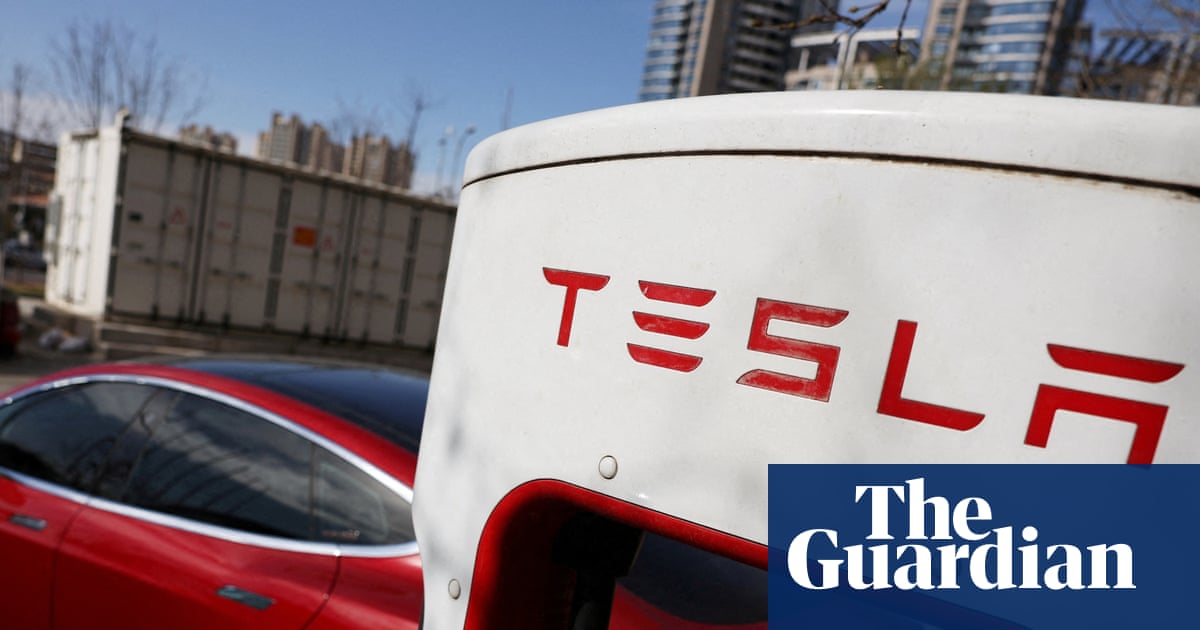The energy secretary, Ed Miliband, has set aside £1.1bn a year for offshore wind power developers investing in new projects in a funding round seen by some in the industry as too small to meet the UK’s green electricity targets.
The government’s energy department said today it had budgeted £900m to pay developers of fixed wind turbines at sea and £180m for floating platforms.
Some energy industry experts raised questions over whether the budget would allow for enough generation to keep the UK on track for decarbonising electricity generation by 2030. One said they had expected a budget as high as £2bn to hit the target.
RenewableUK, an industry lobby group, said the budget would cover only about a quarter of the 20 gigawatts of projects that have planning permission and would be eligible. The group’s executive director of policy, Ana Musat, said: “The budget announced today will not maximise investment in new offshore wind farms.”
Renewables provided about half of the UK’s electricity during 2024, with wind accounting for 30% of generation for the first time – overtaking gas power stations. Further huge investments in wind and solar would be necessary to meet the target of completely removing carbon emissions from British electricity supplies by 2030.
Government sources have previously said ministers might consider abandoning the 2030 target – long seen as hugely ambitious by experts – if it were to add too much to household bills. The Labour government’s clean electricity target is opposed by the Conservative party and Reform, who say they would ditch net zero policies.
A government source disputed that the 2030 target was in question, saying the initial budget for offshore wind showed “big backing by the Treasury”.
Wind power developers, expected to include the energy companies SSE, RWE and ScottishPower, will be invited to bid to build offshore wind projects, which would be eligible to receive the new funds.
In a change from previous years, the final budget could rise higher if ministers considered enough projects provided value for money – potentially surpassing the £1.1bn allocated to offshore wind last year. The contracts would also last 20 years, rather than 15, in order to try to attract lower prices.
Chris Stark, the civil servant who leads the UK’s clean power efforts under Miliband, said he expected the bids to exceed the funding allocated for fixed offshore wind. The government was prepared to “contract more offshore wind generation if we see value for money for the consumer”, he said in a social media post.
Michael Shanks, minister of state for energy, said: “This auction is another step towards delivering the clean power this country needs to end our reliance on volatile global gas prices, ensuring our energy security and bringing down bills for good.
after newsletter promotion
“Our competitive new auction process will allow us to buy the right amount of clean power at the right price on behalf of the British people, so we can take back control of our energy.”
The budget allocated by the government may not all be spent, but rather represents the “worst case” cost under the “contracts for difference” (CfD) scheme, which reduces the risk for developers investing in clean power generation.
Under the scheme, the government sets a bar for electricity prices generated from the projects. If prices are below that bar, called a strike price, the government tops up the difference, while generators must pay back the government for any earnings above that price. The whole budget would be spent only if energy prices were to stay lower than expected for a sustained period of time.
Jess Ralston, head of energy at the Energy and Climate Intelligence Unit, a thinktank, said: “Every bit of free wind and sun power that we harness means we need to buy less foreign gas from abroad, boosting our energy security.”

 3 months ago
60
3 months ago
60

















































